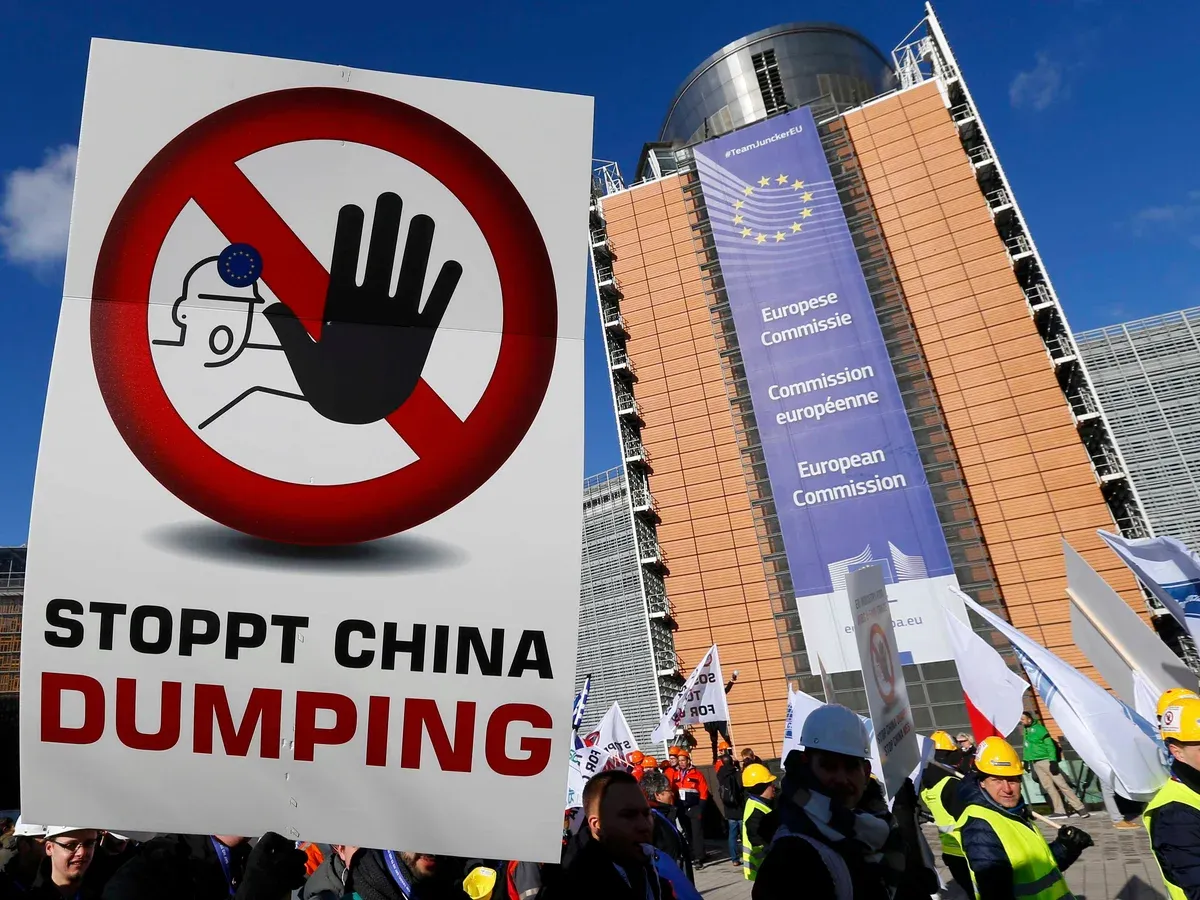
The Free Press, Kevin O’Leary, 1.5.2025
When President Bill Clinton welcomed China into the World Trade Organization in 2001, the idea was to hold them accountable. China was supposed to adhere to WTO rules, guaranteeing intellectual property rights and cooperating with American producers.
But they never complied. Not in the first week, and not in the 20th year of doing business.
The WTO should have kicked them out for noncompliance. Instead, it’s a given that the Chinese Communist Party had free rein to cheat and steal from other members. Partly that’s because the West was able to import cheap Chinese goods, even if their own companies were being put out of business. But it’s also because too many governments were intimidated by China. Now the WTO is wracked and stacked with grievances from the U.S. and other countries that have never been arbitrated, litigated, or resolved. Frankly, I don’t see the point of the WTO even existing if it can’t keep China in check.
Let me give you a good example: steel dumping. The Chinese government intentionally subsidizes the overproduction of steel, flooding global markets with exports that China sells for below the cost of production. That is totally against the international rules of free trade. Producers in the United States, Europe, and Asia simply can’t compete, while China unfairly gains market share.
Or how about the way the Chinese government repeatedly steals intellectual property? To give just one example among thousands, several years ago on Shark Tank we had two impressive American entrepreneurs, Jennifer and Gifford Briggs, who invented the DrainWig. These nifty little devices catch hair and debris in bathtubs and showers, preventing drain blockages, and saving hotels thousands of dollars in maintenance fees. The Briggses went to all the trouble and expense of patenting their product.
Yet as soon as their revenue hit a $5 million trajectory for the domestic market, China swooped in with their cheap knockoffs, at 40 or 50 percent below the DrainWig price. What could they do in response? Sue the Chinese companies in a Chinese court? Of course not. You won’t get anywhere.
An employee working on a lithium battery production line at a factory in Huaibei, in eastern China’s Anhui province. (STR/AFP via Getty Images)
Here’s another of China’s favorite tricks: the golden share. That’s when a preferred shareholder sells all their stock except 1 percent—but that 1 percent still allows them to control the company. Guess what? The Chinese Communist Party has golden shares in everything. Literally: There is no major Chinese company that isn’t controlled by the CCP. So when something like TiKTok comes along, with Congress demanding that TikTok either be sold or banned from the U.S., there’s nobody at the company to negotiate with. There’s only one guy to talk to, the guy who runs the Chinese government—Xi Jinping—since he holds the golden share.
Chinese companies are also not complying with Generally Accepted Accounting Principles (GAAP) when they list their stock on the New York Stock Exchange. [Note: GAAPs are the rules that guide financial reporting in the U.S.] In 2020, Congress passed a law that gave them three years to comply. But as usual, China completely ignored the law. Gary Gensler, the chairman of the Securities and Exchange Commission under Biden, didn’t so much as lift a finger against them. Now his successor, Paul Atkins, is trying to force China to be compliant. But doing so could involve delisting companies with as much as $800 billion in market cap on the New York Stock Exchange and NASDAQ. Will that hurt the NASDAQ? Sure it will. But some things are more important.
China takes advantage of the U.S. domestic markets, yet protects its own. Our companies can’t do business in China unless they have a Chinese partner—and usually have to agree to turn over their intellectual property before the Chinese company will make the deal. We don’t do that to Chinese companies that want to set up offices in the U.S. So why do we let them do that to us there? The answer is a combination of cowardice, laziness, and the allure of cheap goods.
The trouble is that, collectively, we in the West have allowed China to walk all over us for years. Administration after administration, not just in the U.S. but also in Europe, have let China screw the West time after time. I speak for millions who are sick to death of China’s shady business practices, which they’ve been getting away with for decades.
So far, China has shrugged off Trump’s tariffs. Xi may be eager to save face. But we all know how this trade war is going to end. Sooner or later, China is going to have to come to the table and cut a deal with the U.S. Why? There is simply no substitute for the American consumer. Unless Xi wants to start printing money to prop up China’s economy, he is running out of options.
That’s why my advice to President Trump is to squeeze China even harder. The current tariffs, around 145 percent, don’t go far enough. To come out on top, the U.S. should impose 400 percent tariffs. Or, put another way, it should shut down trade with China completely.
Not only will this force a fast resolution, it will also send a clear message—that if it wants to be in the big leagues, China has to play by the rules. To stand up to China means cutting it off, at least for now. It might not be pretty in the short term, but it’s ultimately the only way forward.
